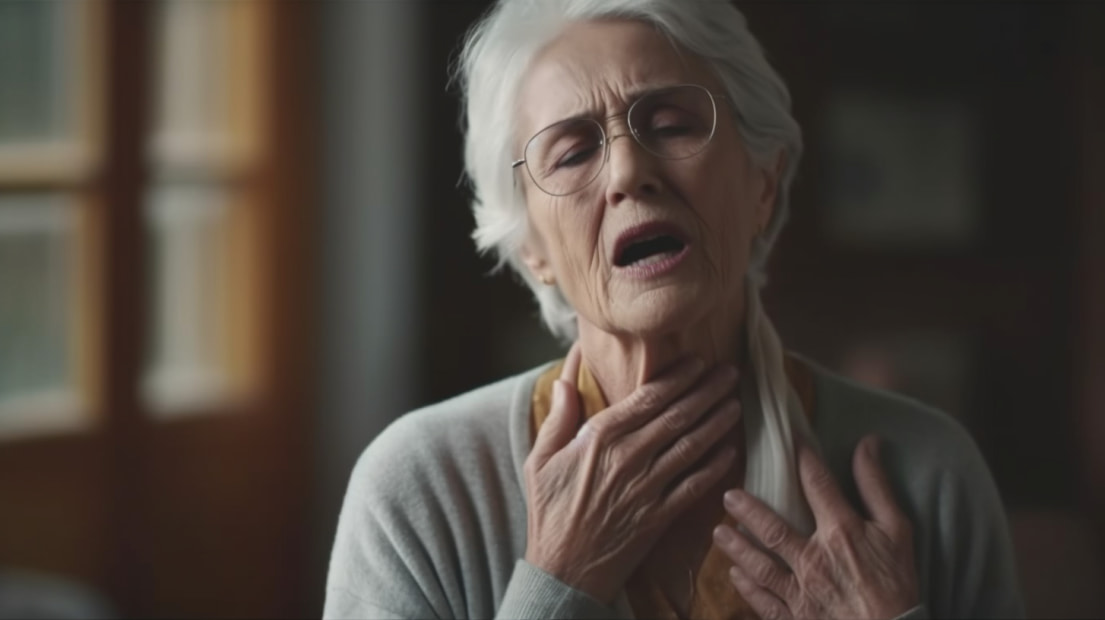Respiratory Syncytial Virus (RSV) is commonly associated with respiratory infections in infants and young children, but can adults get RSV as well? The answer is yes. While RSV infections primarily affect children, adults can also contract the virus, especially those with weakened immune systems or underlying health conditions. RSV infection in adults can lead to respiratory illness, with symptoms ranging from mild to severe. This article will explore the symptoms, diagnosis, and treatment options for RSV in adults, shedding light on the importance of recognizing and addressing this respiratory virus beyond infancy.
What is RSV?
RSV, or Respiratory Syncytial Virus, is a common respiratory virus that can cause infections in individuals of all ages. It is particularly known for causing respiratory illnesses in infants and young children. However, adults can also be affected, especially those with weakened immune systems or underlying health conditions such as chronic lung disease or chronic obstructive pulmonary disease (COPD). RSV infections can range from mild respiratory illness with symptoms like a runny nose and cough to severe infections with more pronounced symptoms. Severe RSV infections can lead to complications, especially in individuals with compromised lung function or weakened immune systems.
A Seasonal Shift and Increase in RSV Cases

Respiratory Syncytial Virus (RSV) infections are typically associated with childhood illness, but there has been a noticeable shift in recent years, with an increase in RSV cases among adults. While RSV infections in adults often present with mild symptoms resembling a common cold, certain individuals, particularly those with underlying lung diseases or weakened immune systems, are at a higher risk of developing severe RSV disease.
Unlike in children, where RSV primarily affects the upper respiratory tract, adults with RSV infection are more likely to experience symptoms that manifest in the lower respiratory tract. These symptoms may include a persistent cough, severe sore throat, and difficulty breathing. In severe cases, RSV can lead to serious complications such as pneumonia and bronchiolitis.
The reasons behind the seasonal shift and increase in RSV cases among adults are not yet fully understood. However, it is believed that factors such as waning immunity, increased exposure to RSV in community settings, and changes in viral strains may contribute to this trend.
It is crucial for individuals, particularly older adults and those with chronic heart or lung diseases, to be aware of the potential risks associated with RSV and seek medical attention if they experience more severe symptoms or respiratory distress. Prevention measures such as practicing good hand hygiene, avoiding close contact with individuals who have respiratory infections, and using saline nasal drops or sprays to keep the nasal passages clear can help reduce the risk of RSV infection.
Can RSV infections can be dangerous for adults?

While respiratory syncytial virus (RSV) infections are commonly associated with childhood illness, they can also pose a significant risk to adults, particularly those with underlying health conditions and weakened immune systems. RSV infections in adults can range from mild respiratory symptoms resembling a common cold to severe diseases affecting the lower respiratory tract.
RSV symptoms in adults may include a runny nose, sore throat, cough, and congestion. However, individuals with severe RSV disease may experience more pronounced symptoms such as persistent coughing, difficulty breathing, and wheezing. Adults with chronic lung diseases or compromised lung function are particularly vulnerable to developing severe RSV infections, which can lead to serious complications such as pneumonia and bronchiolitis.
Older adults, especially those over the age of 65, are also at a higher risk of severe RSV infection. Other risk factors that can increase the severity of RSV disease in adults include congestive heart failure, chronic heart diseases, and weakened immune systems.
It is important for adults experiencing symptoms of respiratory illness, especially those with underlying health conditions, to seek medical attention promptly. Early diagnosis and appropriate management of RSV infections can help reduce the risk of complications and ensure a better outcome.
Symptoms of RSV in Adults
Adults with RSV infection may initially experience symptoms similar to a common cold, including a runny or stuffy nose, sneezing, and mild sore throat.
Cold-like symptoms:
Nasal congestion:
Nasal congestion and a feeling of blockage in the nasal passages are common symptoms of RSV infection in adults.
Trouble breathing:
RSV can affect the lower respiratory tract in adults, leading to symptoms such as shortness of breath, wheezing, and difficulty breathing.
Rapid breathing:
In severe cases of RSV infection, adults may exhibit rapid and shallow breathing, indicating respiratory distress.
High risk for complications:
Adults with weakened immune systems or underlying heart or lung conditions are at a higher risk of developing severe RSV infection and experiencing more pronounced symptoms.
Increased susceptibility to other respiratory infections:
RSV infection can weaken the respiratory system, making individuals more vulnerable to additional respiratory viruses or bacterial infections.
It is important for adults experiencing these symptoms, especially those with high-risk factors, to seek medical attention for proper diagnosis, management, and potential treatment of RSV infection.
Note: As of May 2023, FDA Approves First Respiratory Syncytial Virus (RSV) Vaccine. Arexvy Approved for Individuals 60 Years of Age and Older.
How Do Adults Get RSV?

RSV, or Respiratory Syncytial Virus, can be transmitted from person to person through respiratory droplets when an infected individual coughs or sneezes. Adults can get RSV through close contact with an infected person, such as being in the same room or sharing utensils with someone who has the virus. Additionally, touching surfaces or objects contaminated with the virus and then touching the face, particularly the nose or mouth, can also result in RSV transmission.
Certain settings, such as crowded environments, healthcare facilities, and daycare centers, increase the risk of RSV exposure and transmission. Adults who work in healthcare settings or have frequent contact with children are more susceptible to RSV infections.
It’s important to note that RSV infections can occur at any time of the year, although they are more prevalent during the fall, winter, and early spring. Taking preventive measures, such as practicing good hand hygiene, avoiding close contact with individuals who have respiratory infections, and staying away from crowded areas during peak RSV seasons, can help reduce the risk of acquiring RSV.
Who Is Most at Risk From RSV as an Adult?

Certain groups of adults are at a higher risk of experiencing severe complications from RSV (Respiratory Syncytial Virus) infections. These include:
Older Adults:
Adults over the age of 65 are more susceptible to severe RSV infections due to age-related decline in immune function and potential underlying health conditions.
Individuals with Weakened Immune Systems:
Those with weakened immune systems, such as individuals with HIV/AIDS, undergoing cancer treatment, or receiving organ transplants, have a higher risk of severe RSV infections.
Individuals with Chronic Lung Conditions:
Adults with chronic lung diseases like chronic obstructive pulmonary disease (COPD), asthma, or bronchiectasis are at increased risk of severe RSV disease and complications.
People with Cardiovascular Disease:
Adults with heart conditions, including congestive heart failure, coronary artery disease, or other cardiac diseases, have a higher risk of severe RSV infections.
Individuals with Immunocompromising Conditions:
People with conditions that compromise their immune system, such as autoimmune disorders or genetic immune deficiencies, are more susceptible to severe RSV infections.
Healthcare Workers:
Those working in healthcare settings, especially in close proximity to patients with respiratory infections, are at an increased risk of contracting RSV.
It’s crucial for individuals in these high-risk groups to take preventive measures, such as practicing good hand hygiene, avoiding close contact with sick individuals, and staying up to date with recommended vaccinations, to minimize the risk of RSV infections and their potential complications.
What to Do if You Have Symptoms of RSV?
If you or someone you know is experiencing symptoms of RSV (Respiratory Syncytial Virus), it is important to take appropriate steps for diagnosis and care. Seek medical evaluation from your healthcare provider, especially if you have a weakened immune system, are an older adult, or have underlying health conditions. Follow your healthcare provider’s recommendations for treatment and self-care measures. Prevent the spread of RSV by keeping yourself or your child away from others, practicing good hand hygiene, covering your mouth and nose when coughing or sneezing, and disposing of used tissues properly. Protect vulnerable individuals, such as infants and those with weakened immune systems, by limiting contact until symptoms improve. If symptoms worsen or persist, seek immediate medical attention as RSV can lead to more severe respiratory infections, including bacterial pneumonia.
How to Treat RSV in Adults
The treatment of RSV (Respiratory Syncytial Virus) in adults primarily focuses on managing the symptoms and preventing complications. Here are some key approaches used to treat RSV in adults:
1. Supportive Care: Most cases of RSV in adults resolve on their own with supportive care. This includes getting plenty of rest, staying hydrated, and using over-the-counter pain relievers, such as acetaminophen or ibuprofen, to alleviate discomfort and reduce fever.
2. Symptom Management: Over-the-counter saline nasal drops or sprays can help relieve nasal congestion. Gargling with warm saltwater or using throat lozenges may provide relief for a sore throat. Cough suppressants or expectorants may be recommended to alleviate persistent coughing.
3. Medical Monitoring: Individuals with severe RSV disease or those at higher risk, such as older adults or those with underlying health conditions, may require close medical monitoring. This involves regular check-ups to assess symptoms, monitor oxygen levels, and evaluate the need for additional interventions.
4. Hospitalization: In severe cases, particularly when there is significant respiratory distress or complications, hospitalization may be necessary. Hospital-based treatments may include oxygen therapy, intravenous fluids, and respiratory support, such as mechanical ventilation.
5. Prevention Strategies: While there is no specific RSV vaccine available for adults, efforts are underway to develop vaccines. In the meantime, preventive measures such as practicing good hand hygiene, avoiding close contact with individuals with respiratory infections, and maintaining a healthy lifestyle to strengthen the immune system can help reduce the risk of RSV infections.
It’s important for adults with RSV to follow their healthcare provider’s recommendations regarding treatment and seek medical attention if symptoms worsen or persist, especially if they are at higher risk of severe disease.
How to Prevent RSV Infection
Preventing RSV (Respiratory Syncytial Virus) infection involves taking precautionary measures to reduce the risk of exposure and transmission. Here are some key strategies for preventing RSV infection:
Good Hand Hygiene:
Wash your hands thoroughly and frequently with soap and water for at least 20 seconds, especially before eating, after using the restroom, and after being in public spaces. If soap and water are not available, use alcohol-based hand sanitizers.
Avoid Close Contact:
Limit close contact with individuals who have respiratory infections, especially if they have symptoms of RSV. This includes avoiding close contact with sick individuals, refraining from sharing personal items like utensils and cups, and keeping a safe distance from individuals who are coughing or sneezing.
Stay Home When Sick:
If you or your child have symptoms of a respiratory infection, such as coughing, sneezing, or a runny nose, it is advisable to stay home from work, school, or social gatherings to avoid spreading the virus to others.
Respiratory Etiquette:
Cover your mouth and nose with a tissue or your elbow when coughing or sneezing to prevent respiratory droplets from spreading. Promptly dispose of used tissues in a trash bin and perform hand hygiene afterwards.
Clean and Disinfect:
Regularly clean and disinfect frequently-touched surfaces, such as doorknobs, light switches, and countertops, using household disinfectants. This helps to minimize the survival of viruses on surfaces.
Protect High-Risk Individuals:
Take extra precautions to protect individuals at higher risk for severe RSV infection, such as older adults, infants, and individuals with weakened immune systems or underlying health conditions. Limit their exposure to crowded places and individuals who may be sick.
Promote Healthy Habits:
Maintain a healthy lifestyle by getting enough sleep, eating a balanced diet, and engaging in regular physical activity. A healthy immune system can better defend against viral infections.
It is important to note that currently, there is no specific RSV vaccine available for adults. However, efforts are being made to develop vaccines to prevent severe RSV infections in high-risk populations, such as premature infants and older adults.
Therefore, RSV (Respiratory Syncytial Virus) infections can affect adults, and while they often cause mild respiratory illness similar to the common cold, they can also lead to severe disease, especially in high-risk individuals. Older adults, those with weakened immune systems, and individuals with chronic lung or heart conditions are particularly susceptible to severe complications. Prompt medical evaluation and appropriate care are crucial when experiencing symptoms of RSV. Preventive measures, such as practicing good hand hygiene, avoiding close contact with sick individuals, and staying updated on vaccinations, can help reduce the risk of RSV infection. As ongoing research continues to deepen our understanding of RSV, advancements in preventive strategies and treatment options hold promise for mitigating the impact of RSV infections in adults.




















































